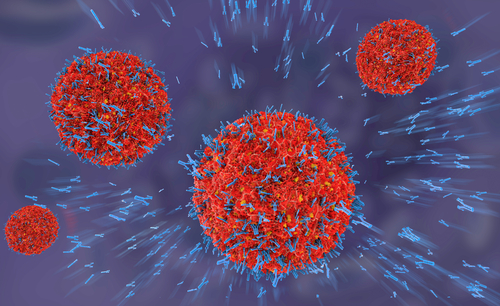Bayer has initiated patient dosing in a Phase 1 trial assessing the investigational immunotherapy BAY 1905254 in advanced solid tumors. The study is currently recruiting in Texas and plans to recruit in California, Connecticut, Illinois and Michigan.
BAY 1905254 (formerly known as CGEN-15001T) is an antibody that targets an immune checkpoint protein discovered by Compugen. The protein, called ILDR2, has been shown to exert suppressive functions on T-cells, preventing them from fighting cancer cells.
By blocking this protein, BAY 1905254 is meant to unleash T-cell activity, helping the immune system fight cancers.
In preclinical studies, the medicine had anti-tumor effects in different cancer mouse models, and worked well in combination with other immune checkpoint inhibitors, chemotherapy, and anti-tumor vaccines.
In August 2013, Compugen and Bayer established an agreement for the development and commercialization of antibody-based cancer immunotherapies, including BAY 1905254.
Under the terms of the agreement, Bayer is responsible for all the clinical development of BAY 1905254 and its future commercialization worldwide, if the therapy is approved.
“ILDR2 was one of the first immune checkpoint targets discovered through our discovery platforms and the first to enter into an R&D collaboration and license agreement with a pharma partner,” Anat Cohen-Dayag, PhD, president and CEO of Compugen, said in a press release. “Bayer has been an outstanding partner and we greatly appreciate their excellent R&D team and commitment to advancing this program to the clinic.”
The ongoing, first-in-human trial of BAY 1905254 (NCT03666273) will include 196 patients in the United States. The study will be conducted in two parts.
First, patients deemed sensitive to immunotherapies will receive increasing doses of BAY 1905254 every two to three weeks to determine the best and safest dose.
Next, researchers will conduct an expansion study only in patients with high-burden urothelial cancer, head and neck squamous cell carcinoma (HNSCC), and cervical cancer. Each cohort will include at least six patients.
Researchers will also determine how the medication is changed and distributed by the body. For additional information about the study or how to participate, click here.
With the initiation of BAY 1905254’s Phase 1 trial, Compugen is entitled to receive a milestone payment of $7.8 million.
“This represents a breakthrough achievement for Compugen and proof of concept of the power of our computational discovery capabilities,” said Cohen-Dayag. Compugen hopes that BAY 1905254 “will become a life-changing treatment option for patients unresponsive to existing cancer immunotherapies.”


